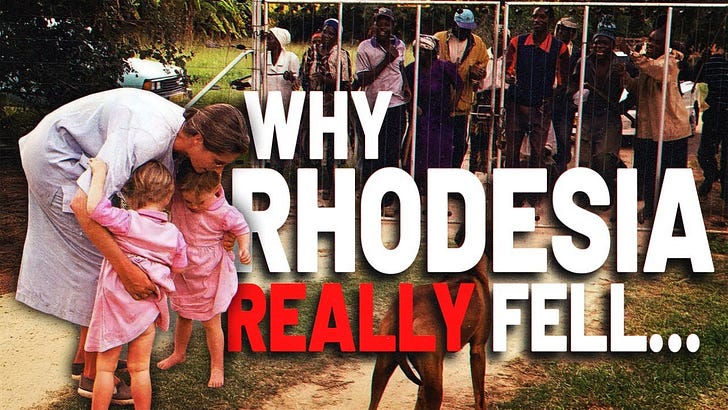Aleister Crowley, Loki’s Brood & the Fury of Hell I by Jack Heart & Orage
“The chains pulled taut around the casts and jerked me back down into the hospital bed as if I had been levitating in my sleep. I was drenched in sweat and for a moment I did not know who or where I was. The combined restraints of my injuries and the manacles had frozen my body to the bed and I felt a claustrophobic panic beginning to overwhelm me. I forced myself to concentrate and evaluate my situation. My memories suddenly came flooding back as if some great spigot had opened up a subterranean torrent of strange images and swirling sorrow.
I had been dreaming. I was in Aleister Crowley’s Boleskine House overlooking Loch Ness. There was a cavernous opening in a wall. It looked like some kind of vault. Within the vault was a gateway which was guarded by a male and a female child. The children were about twelve years old and of oriental descent. They were both wearing flowing silk robes and they did not speak but somehow I knew that Crowley had used them to carry out the instructions given in S.L. MacGregor Mather’s translation of The Sacred Magic of Abramelin the Mage.
Crowley had secured the house by the lake and undergone all the purification rituals prescribed in the manuscript. At the moment when the ritual is supposed to culminate with the appearance of an Angel who will transmit, through a prepubescent child, the sublime revelations that can transform a man into a God Crowley added his own little twist to the ritual. He slit the throat of each of the children and opted to forgo the ungainly intermediary’s in favor of the knowledge being delivered directly to him.
The children now stood as eternal sentinels to the portal he had opened up. They gestured for me to enter and when I did I saw that Crowley had unleashed three great demons into the world. Two of the dark Gods had already insinuated themselves into the collective soul of the human race but the third still lurked on the bottom of the lake. I saw them in their unimaginable vastness and all of the corruption they had brought upon the earth, now reeking with filth.
Suddenly I realized they were aware of my presence as was the one that was dormant on the bottom of the lake. The one on the bottom of the lake was the most powerful and maybe because I could not see it the most sinister. It rose up to meet me and I was griped with fear. I took flight over an endless roiling sea hurtling faster and faster through the grey and angry sky. The terror at my heels took the form of construction dumpsters and I could hear them clanging together as they pursued me. I flew faster and faster till my momentum hurled me across the dreams event horizon and I crashed down into the hospital bed…” – Jack Heart, Those Who Would Arouse Leviathan
It was just a dream, or was it? I know more about Aleister Crowley than any human being will ever live to know. I have been taught all his most secret traditions but the very first thing I was taught is never, never ever, read anything about Crowley that was not written by either himself or Israel Regardie, one of the few men Crowley ever let get to really know him.
Even with all that he wrote and he was a prodigious writer, Crowley has been quoted out of context more often than not. He was the ultimate narcissist and with better reasons than any mere king or queen. Crowley frequently took multiple paragraphs just to say good morning, spraying sentences like a Vickers Machine Gun belching out bullets in WW I, of which he was the primary instigator. There is basically nothing Crowley didn’t say at one time or another…
By the end of March 1933 with the passage of the Enabling Act the National Socialists had attained absolute power in Germany and by June of that year, Crowley could no longer contain his enthusiasm. In the first of a three-part series of articles for the London Sunday Dispatch Crowley gloats; “At birth I had three of the distinguishing marks of a Buddha. I was tongue-tied, I had a characteristic membrane which necessitated an operation, and over the centre of my heart I had four hairs curling from left to right in the exact form of a Swastika. Before Hitler was, I am.” (1) The I Am part means he is not just the power behind National Socialism he is its God…
To the fishmongers in the marketplace and barely literate factory workers reading the Dispatch, this may have sounded like idle boasting but to the kings and queens of the earth also reading, those that rule from behind the West’s democratic façade from high atop the pinnacle of synarchy, it sounded like a fact. It had always been their greatest fear, the sum of all fear; Crowley was going rogue and he was taking the German people with him.
Although he’d been telling the scions of synarchy, those that knew he could perform any of the miracles attributed to Jesus and so many more, that he was here to usher in a New Aeon; Crowley had but one categorical imperative and that was to kill God. Toward that end he would stop at nothing; which he spells out for the dense with his occult name; Frater Perdurabo, meaning inLatin: “I Will endure to the end…”
Crowley had been born to kill God and if I engaged in conjecture, I would say Friedrich Nietzsche wrote The Anti Christ as a Bar Mitzvah present to him. Crowley was turning thirteen when Nietzsche penned it. Although he had memorized the bible by the time he was seven years old Crowley rejected his rigid Plymouth Brethren upbringing almost from birth. He knew he was the Beast of Revelations the first time he ever heard of it. Famed mountaineer, chess master and saint of the Gnostic Church Crowley was a self-described dope fiend and had an intellect that could rival even Nietzsche. He set about the task at hand with an inhuman single-mindedness of purpose.
To Read the Rest: Aleister Crowley, Loki’s Brood & the Fury of Hell I by Jack Heart & Orage – The Human: Jack Heart, Orage and Friends (jackheartblog.org)
Aleister Crowley, Loki’s Brood & the Fury of Hell… II by Jack Heart & Orage
By the end of WWI, William Butler Yeats knew exactly what was coming. The most famous poem in the Michael Robartes and the Dancer collection is “The Second Coming.” Yeats begins it:
“TURNING and turning in the widening gyre
The falcon cannot hear the falconer;
Things fall apart; the centre cannot hold;
Mere anarchy is loosed upon the world.”(13)
The Egyptian hieroglyph for Horus is the falcon. In the aftermath of WWI’s carnage, Yeats sees clearly that nothing can control the God of War and Vengeance: “The blood-dimmed tide is loosed, and everywhere / The ceremony of innocence is drowned.” In the poem’s last line, Yeats asks “And what rough beast, its hour come round at last, slouches toward Bethlehem to be born?”(14) Yet he has already described the Beast with all the skill that his prodigious talent as a poet would allow:
“A shape with lion body and the head of a man,
A gaze blank and pitiless as the sun.
Is moving its slow thighs, while all about it
Wind shadows of the indignant desert birds.
The darkness drops again but now I know
That twenty centuries of stony sleep
Were vexed to nightmare by a rocking cradle.” (15)
Yeats had been vacillating ever since 1913, when he had slain Michael Robartes in a short story titled “Rosa Alchemica.” Right before the turn of the century in The Wind Among the Reeds, Yeats had said of his muse: “Michael Robartes is the pride of the imagination brooding upon the greatness of its possessions, or the adoration of the Magi.” (16)
But by 1913, it was entirely different. Michael Robartes had now metastasized into one of the Golden Dawn’s infamous “hidden masters,” the supernatural beings whose disputed existence and direction caused a schism within the group that was settled by Aleister Crowley’s pistol.
In the story, Robartes appears at his door after a fifteen-year hiatus and forces Yeats with mind-bending incenses to accompany him to a temple by the seaside, where they are besieged by an irate Christian mob. During the night, Yeats participates in a ceremony with a cult similar to the Golden Dawn. When he awakens in the morning, he finds that the ornate temple has now become an old barn, and he is unable to rouse Robartes and the rest of the cult who are in a trance-like sleep. As Yeats flees, Robartes and the cult are stoned to death by an enraged Christian mob.
Yeats then waxes poetic as he delivers Robartes’ eulogy, which is a reflection of his own faltering courage. Yeats renounces the deception of “Legion,” like a little Catholic boy renouncing the Devil, wrapped in the imaginary protection of his rosary beads. Yeats’ insecurities didn’t last long, though. By 1916, his guilt for what they had done combined with his grandiose opinion of himself had convinced him that he was the incarnated Sun God and could pull off the Great Work by himself.
The first two poems in Michael Robartes and the Dancer are about Yeats’ own love life. In the first poem, the title poem, Yeats refers to himself as a “half-dead dragon” in the eyes of the much younger Iseult Gonne, whom it seems Yeats believed to be the incarnated soul of the moon. Iseult was herself of magical birth, being conceived in an act of sexual Magick, as the aristocracy has been practicing for thousands and thousands of years. She was among the kings and queens of Europe a legendary beauty and the daughter of their own residing wild woman Maud Gonne.
In his desperation, Yeats allowed himself to become convinced that he could perform the Great Work without the necessary pain, bloodletting, and details that his nemesis Crowley and his followers were apparently reveling in by 1916. Crowley says of himself in the author’s note of Moonchild that by 1917, he was exerting his best “efforts to bring America into the war.” To Crowley and his aristocratic followers, WWI was not a struggle between nations but a Holocaust, a blood sacrifice, burnt offerings to bring about the incarnation of Horus and the killing of the old grey world and its tyrannical God.
Undaunted, our rejected self-appointed Sun God next proposed to Maud Gonne whom he believed to be the rest of the Pagan female pantheon. Rejected again, our intrepid Sun God married his fellow Golden Dawn initiate, twenty-four-year-old Georgie Hyde-Lees, the witch of “Solomon and the Witch,” the second poem of the Robartes collection.
The proposals all took place in 1916, a year in which Yeats was obviously desperate to marry. The year 1916 appears in another verse of the collected works. “Easter, 1916” is a poem first published back in 1916. On the surface, it appears to be about Irish nationalism, but contains the line “When sleep at last has come on limbs that had run wild,” a sentence that could be interpreted pornographically. Easter is also the day of resurrection in Yeats’ Christian security blanket. Regardless of the ambiguity of “Easter, 1916,” Yeats’ meaning in “Solomon and the Witch” –the second poem of Michael Robartes and the Dancer– is perfectly clear.
To Read the Rest: Aleister Crowley, Loki’s Brood & the Fury of Hell… II by Jack Heart & Orage – The Human: Jack Heart, Orage and Friends (jackheartblog.org)
Europe: les soldats et les jeunes fuient les armées
Les populations issues de l’immigration ne sont pas intéressées par l’uniforme militaire pour mener les guerres de l’Occident, ni les autres jeunes de ces pays. La plupart des migrants soutiennent la Russie. Les appels lancés par les dirigeants de l’OTAN pour recruter des soldats dans une croisade contre la Russie sont boudés par les recrues qui ont commencé à fuir.
L’armée française est face à des départs volontaires et à un manque de recrutement. Le ministre français des Armées, Sébastien Lecornu, a dévoilé son plan pour mettre fin à l’augmentation des départs dans l’armée française. «Il ne s’agit plus tant de recruter de nouveaux soldats que de persuader les troupes existantes de ne pas démissionner», stipule Politico. «Ces conversations existent désormais dans toutes les capitales, dans toutes les démocraties qui disposent d’armées professionnelles sans conscription», souligne le média anglophone. Les armées occidentales ne peuvent plus recruter et manque de soldats.
Même l’Allemagne est touchée. Un récent rapport annuel soumis au Parlement allemand a montré qu’en 2023, quelque 1.537 soldats ont quitté la Bundeswehr, la réduisant à 181.514 effectifs. Les Européens ne veulent pas mourir pour une guerre voulue par leurs élites. Cela traduit la résistance des populations en Europe contre la guerre de l’UE contre la Russie.
To Read the Rest and Translate into your own langauge: Europe: les soldats et les jeunes fuient les armées. Observateur Continental
Below are two links where you can purchase Those Who Would Arouse Leviathan. I would suggest you buy it in hardcopy, not because I make more, I actually make the most from Amazon E books, but because you will avoid giving Amazon any money. Frankly you should be shooting Amazon employees in the street, Google too.
Those Who Would Arouse Leviathan by Jack Heart, Hardcover | Barnes & Noble® (barnesandnoble.com)
















Share this post